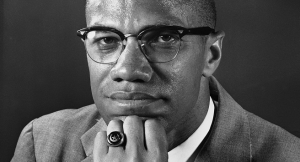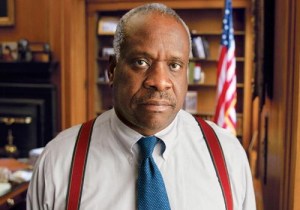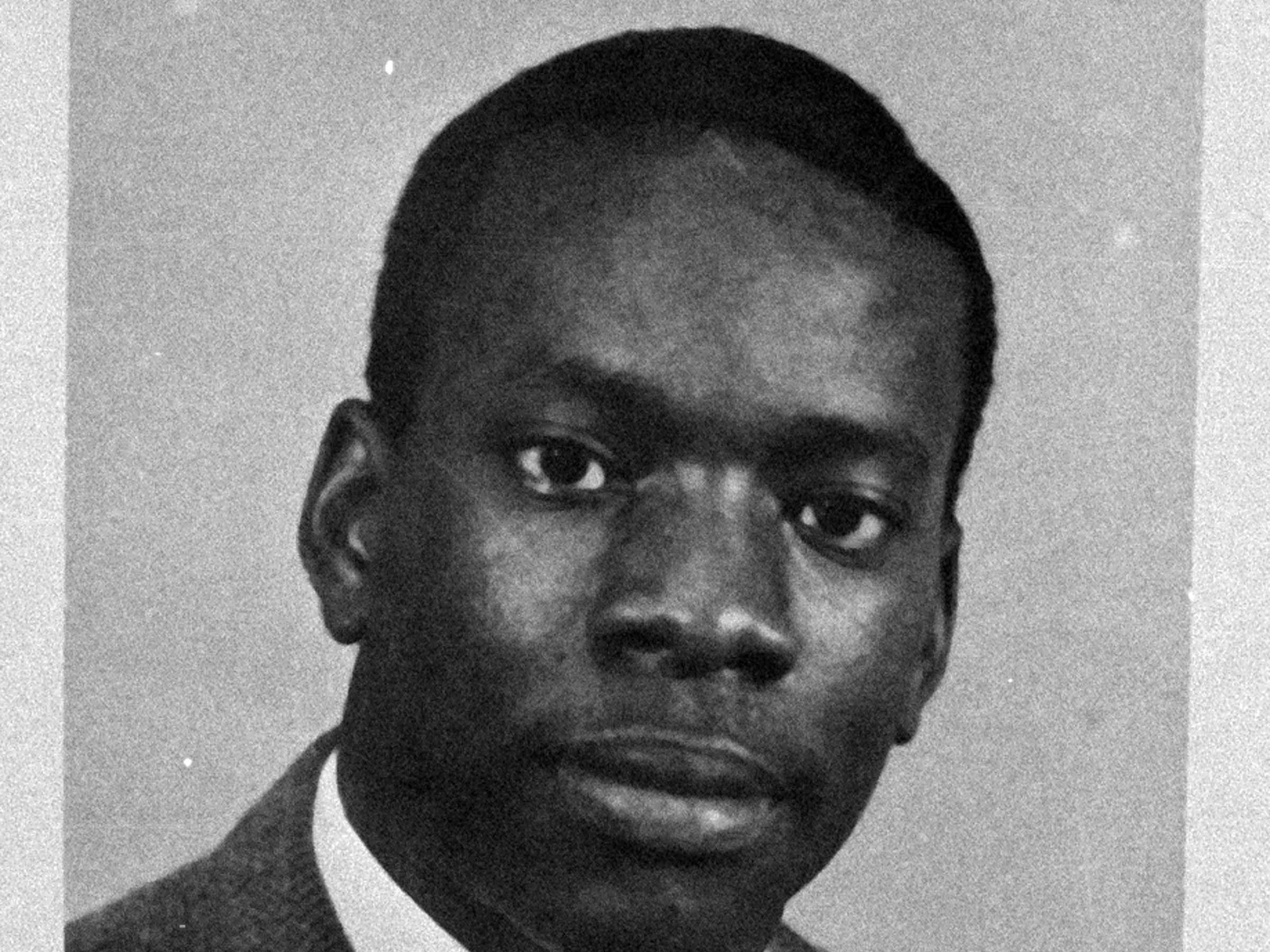On the day Martin Luther King, Jr. was shot, Clarence Thomas was 20 years old and studying to become a priest. He heard a fellow seminary student say, “I hope the SOB dies.”
Videos by Rare
Thomas immediately quit seminary and adopted “The goatee, the black leather jacket, and the solidarity with Malcolm X” at Holy Cross College, as Juan Williams described it.
Twenty years later, and four years before Thomas would become the Supreme Court’s second black justice, Williams still described Thomas as a “black nationalist” and Reason magazine noted in 1987, “He is not your typical Reagan appointee: he flirted with the Black Panthers; he still respects Malcolm X.”
Yes, before Clarence Thomas became rightwing he was a left radical—but for conservative reasons.
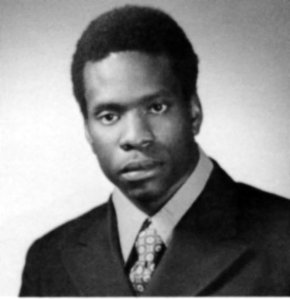
Thomas’ conservatism begins with his grandfather and the values instilled in him at a young age. Thomas described his upbringing in an interview with Reason in 1987 as “An environment with very strict rules, an environment that put a premium on self-help, an environment that did not preach any kind of reliance on government—there was a feeling that you had an obligation to help other people, but it didn’t come from the government.”
Thomas’ strong belief in self-reliance coincided with a radical phase in college, where Williams said the future Supreme Court Justice, “led the free-breakfast program for black schoolchildren in Worcester, Massachusetts (and) dallied with the Black Panthers…”
In 1969, The Black Panthers began an initiative called, the “Free Breakfast for School Children Program,” serving food to poor black youth in Oakland, California. The program was so successful that within a year different Black Panther groups and affiliates were feeding over 10,000 children across the country every morning.
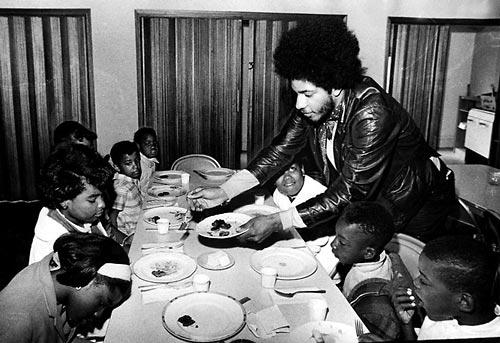
It was this combination of do-it-yourself ethos and rejection of government that fueled Thomas’ ideological journey. Raw Story reported in 2007, “Thomas would become a Republican himself in 1980 and vote for Ronald Reagan, seeing in Reagan’s policies a reflection of the work ethic instilled in him by his grandfather. He eventually concluded that government programs designed to help blacks were demeaning and that the civil rights movement had created a cult of victimization.”
Thomas’ brief involvement with the Black Panthers reflected the radical group’s tension with the bulk of the 1960s civil rights movement. Thomas, even in 1987, clearly favored the approach of the Panthers and Malcolm X to that of the more mainstream civil rights leadership. Wrote Juan Williams:
He quotes from memory these words of Malcolm X: “The American black man should be focusing his every effort toward building his own businesses and decent homes for himself. As other ethnic groups have done, let the black people, wherever possible, however possible, patronize their own kind, hire their own kind, and start in those ways to build up the black race’s ability to do for itself. That’s the only way the American black man is ever going to get respect.”
Reason’s Bill Kauffman asked Thomas in 1987 “It’s odd that Malcolm X isn’t a conservative hero, isn’t it? He was very good on self-help.” Thomas replied, “Yes, but he had some very strong things to say about whites. I’ve been very partial to Malcolm X, particularly his self-help teachings. I have virtually all of the recorded speeches of Malcolm X.”
Thomas has long qualified his youthful admiration for the Black Panthers and Malcolm X, or as he explained to Reason, “I was sympathetic to virtually all groups that wanted to get away from the old system… The Panthers offered for some of us who were young hot-blooded and ill-tempered, another way.”
Thomas would add, “The unfortunate thing was that it wrapped a lot of Marxist-Leninism and a lot violence. But I was also partial to the Black Muslims, primarily because of their belief in self-help.”
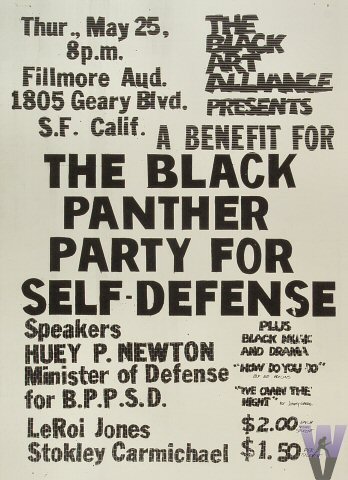
Thomas’ enduring belief in the liberating value of black self-help extends to his support of the Second Amendment. In the 2010 Supreme Court case of McDonald vs. Chicago, Thomas affirmed the individual’s right to bear arms, saying, “when the Ku Klux Klan and other white supremacist groups proliferated, the use of firearms for self-defense was often the only way black citizens could protect themselves against mob violence.”
Thomas wrote in his decision, “It was the ‘duty’ of white citizen ‘patrols to search negro houses and other suspected places for firearms.’ If they found any firearms, the patrols were to take the offending slave or free black ‘to the nearest justice of the peace’ whereupon he would be ‘severely punished.’”
The Washington Post’s Courtland Milloy said Thomas’ “advocacy for black self-defense is straight from the heart of Malcolm X” and that his “scorcher of an opinion… reads like a mix of black history lesson and Black Panther Party manifesto…”
Clarence Thomas knows that history and is now a part of it, as the most conservative Supreme Court Justice with the most radical roots.
Or as Juan Williams observed in 2011, “Malcolm X on the Supreme Court might look a lot like Justice Thomas…”

